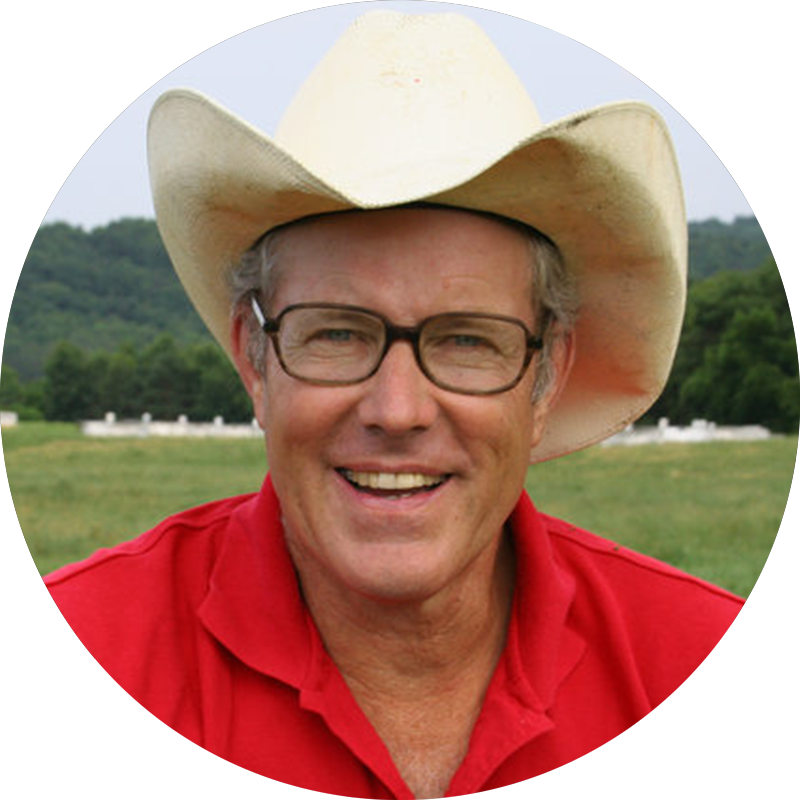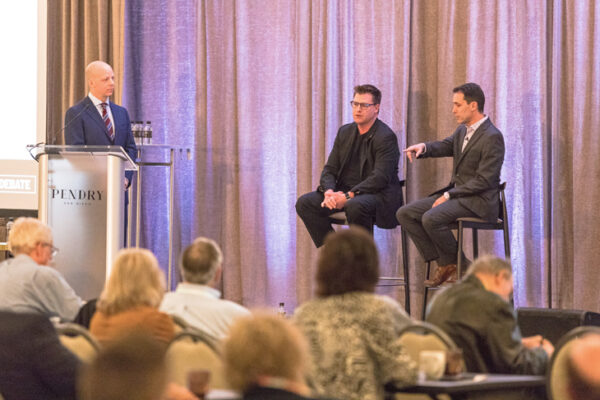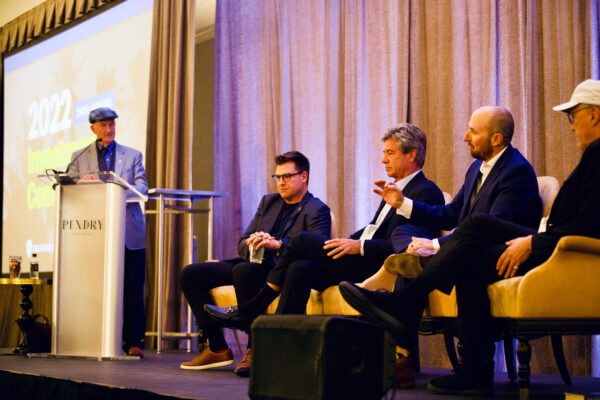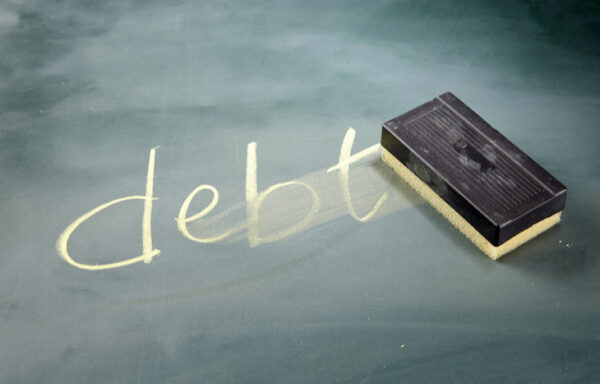Far More Valuable Than a Stockpile of Food and Money
Editor’s Note: Exciting news… Joel’s latest book is available for pre-order! Called Beyond Labels, the book confronts the biggest issues in America’s food supply and shows how easy it can be to take charge of your own health – one bite at a time. The ideas, evidence and takeaways from this book have the power to reshape America’s declining health. Click here to pre-order today.
I remember like yesterday the conversations and conundrums surrounding Y2K. Pundits were all over the map, from “Nothing will happen” to “We’re going to be living in caves and whittling cooking utensils with pocketknives.”
Sorting out the proper response occupied hours of reading, seeking, praying and late-night discussions.
Back in Y2K, the issue was internet failure, grid failure, microchip failure. It was a technology malfunction that would bring the world crashing down to something resembling the 1940s.
Today, the issue is not really COVID-19; it’s a complete collapse of what some call the “Everything Bubble.”
We all follow certain thinkers who earn our respect because they have a track record of good decisions. One of my guys says the pandemic enabled governments that were bankrupt to blame something else for economic collapse. It’s the perfect scapegoat.
Whether it was contrived or not, it certainly bailed out our spendthrift politicians from having to own their financial chaos.
Most wise people realize by now that the pandemic’s issue is not sickness; it’s money.
It begs the question… If by December we’re in postapocalyptic times, what will you do?
Too Late
Last week I spent an hour on the phone with two bright, middle-aged couples who were looking for the proper survival response to a cultural cataclysm.
The husbands in both of these couples were ex-military and believed things would be dire over the next few years. Their question: “What is our best avenue to create security for our families during cultural chaos and collapse?”
Steeped in survival lore, they looked first at hermit mountain man strategies.
The word survivalist conjures up the thought of a lone existence sequestered in a cave or cabin in a remote wilderness living on edible wild plants and backwoods cunning. Deadfall traps, cordage made from sinew and clothes made from buckskin – this life certainly has an appeal, especially for introverts or people who have been abused and hold a strong distrust of neighbors.
The problem with this scenario is that it requires massive amounts of self-reliance skills. You don’t just step out of your computer job and know how to set a deadfall trap to successfully kill a rabbit.
And you have to figure out where you’re going to go to survive. People who create survival podcasts and YouTube presentations eat, drink and sleep survival techniques. And they do it for a long time.
If you wait for things to start collapsing before you head for the hills, you’re too late. You’ll never learn the skills fast enough to survive.
If this is your option, you have to do it now, way ahead of the collapse. But almost no one is willing to do that. We’re all enamored by the skills these survival gurus have, but few of us are willing to spend the years building to that mastery. For a lot of reasons, this survival trajectory is simply not practical.
What’s the other option?
Invest in Connections
It’s on the opposite end of the spectrum, what I call communal survivalism.
In that scenario, you invest in relationships. I’ve always said I’d like to be Amish without the costume. If you surround yourself with an eclectic blend of expertise, you’ll collectively have the knowledge and skills to weather the chaos.
That is something you can do without actually jumping off a cliff. It will take time, to be sure, but it can be cultivated while you’re still enjoying the benefits of a quasi-functional culture.
I’m not talking about a cult; I’m talking about something far more basic than an insurance policy and far more long-lived than a stockpile of food.
Interestingly, in the last couple of years I’ve helped several people find property near us as a bunker for hard times. Some moved here and some didn’t. They realized that our farm, with its low carbon footprint and our team that can grow, build, and fix things, is as secure as just about anything. And so they bought land nearby that we manage for them while securing a haven in case of ground zero.
I have no idea if the monetary system will collapse or if savings will be wiped out. I do know that realtors report skyrocketing interest in rural properties right now. But nobody is listing because of uncertainty.
The properties listed prior to the pandemic are on the market and not being taken off. But no new ones are coming on yet. They will once the dust settles a bit.
Building Your Fort
In times of uncertainty, people head to the fort. In today’s world, the fort is not a physical stockade; it’s a knowledge and skill stockade. The physical part is simply a land base with resources to support the people occupying the property.
Goals for preparing, then, revolve around land, expertise and as much independence as possible.
When people start talking about not being able to get electricity or not being able to buy gasoline and grain, they must realize that in such a postapocalyptic world, we won’t be techno cherry-picking. We’ll be eating herbivores and growing seed-saved vegetables, and society will be in complete breakdown.
That’s an extreme scenario and probably won’t happen.
But hiccups in supermarket supplies are quite likely. Hiccups in your 401(k) are certainly possible. Restrictions to commerce, nationalization of business and other key disruptions could happen.
The pandemic has awakened a new sense of urgency for personal security in uncertain times.
But rather than casting off from society and heading for the hills, I suggest a more prudent and practical course of action is to develop a relationship with a place and an outfit, or community, that exhibits principles of resilience. That investment might yield a better return.
Like what you’re reading? Let us know your thoughts here.
[adzerk-get-ad zone="245143" size="4"]About Joel Salatin
Joel Salatin calls himself a Christian libertarian environmentalist capitalist lunatic farmer. With a room full of debate trophies from high school and college days, 12 published books, and a thriving multigenerational family farm, he draws on a lifetime of food, farming and fantasy to entertain and inspire audiences around the world. He’s as comfortable moving cows in a pasture as he is addressing Fortune 500 CEOs at a Wall Street business conference. A fierce defender of personal freedom and choice, he brings an unorthodox viewpoint that readers of Manward Digest can’t get enough of.






